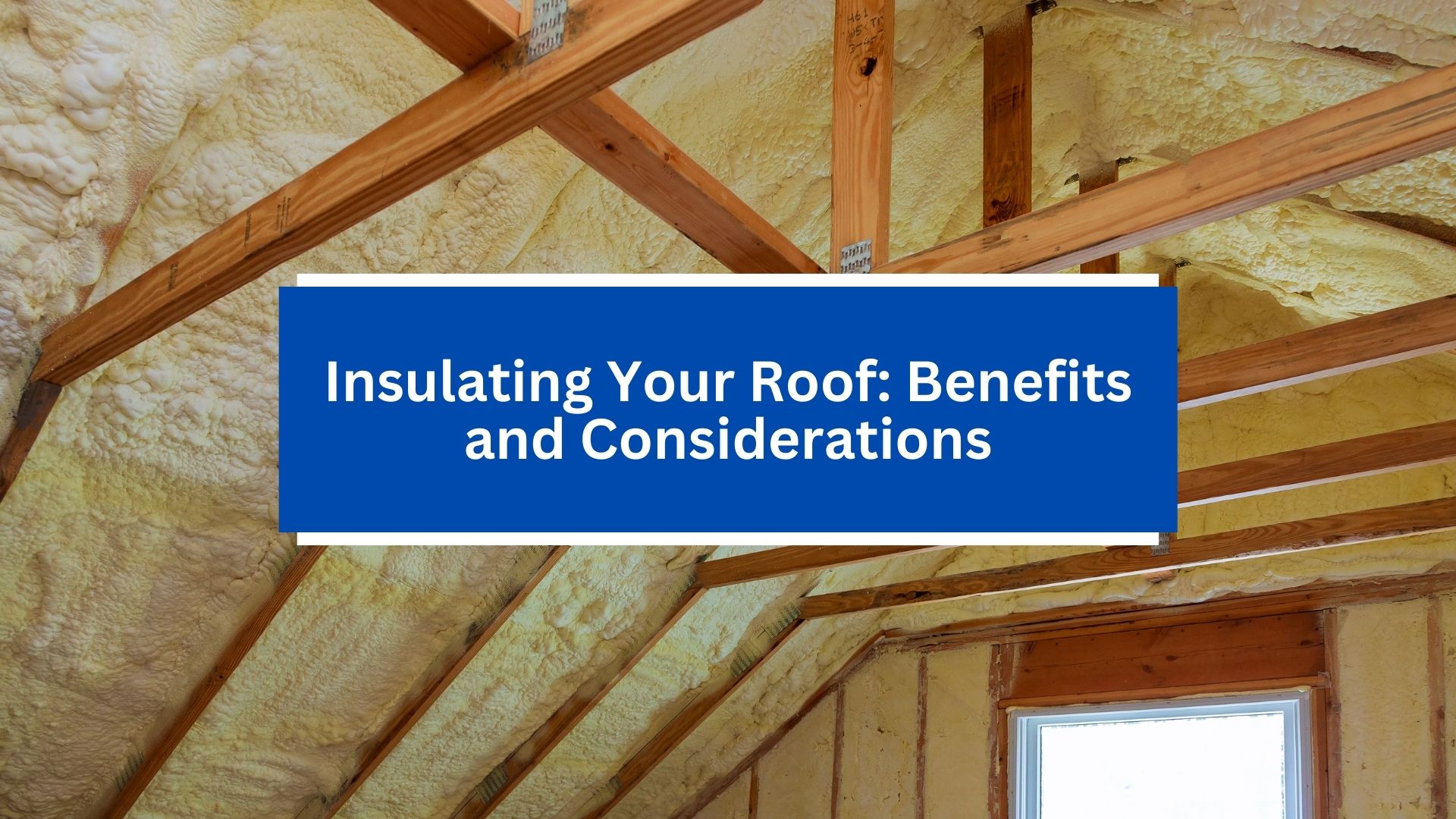Roof insulation is an essential component of a well-protected and energy-efficient home. It plays a crucial role in maintaining comfortable indoor temperatures, reducing energy costs, and extending the lifespan of your roof. In this blog post, we’ll explore the benefits of roof insulation and important considerations to keep in mind when insulating your home’s roof.
Improved Energy Efficiency:
One of the primary benefits of roof insulation is improved energy efficiency. By preventing heat transfer between the interior and exterior of your home, insulation helps maintain a consistent indoor temperature, reducing the workload on your heating and cooling systems. This results in lower energy bills and increased comfort year-round.
Enhanced Comfort:
Properly insulated roofs help maintain more stable indoor temperatures, reducing drafts, hot spots, and cold spots throughout your home. This creates a more comfortable living environment for you and your family, regardless of the weather outside.
Reduced Environmental Impact:
By reducing energy consumption, roof insulation can help lower your carbon footprint and minimize your home’s impact on the environment. Insulating your roof is an eco-friendly investment that promotes sustainability and contributes to a greener future.
Protection Against Moisture Damage:
Roof insulation also helps protect your home against moisture damage by preventing condensation buildup in the attic and roof space. Condensation can lead to mold growth, rot, and structural damage if left unchecked. Proper insulation acts as a barrier, reducing the risk of moisture-related issues and preserving the integrity of your home’s structure.
Considerations for Insulating Your Roof:
When insulating your roof, there are several important considerations to keep in mind:
Type of Insulation: There are various types of insulation available, including batt, blown-in, and spray foam insulation. Each type has its own benefits and considerations, so it’s essential to choose the right insulation for your specific needs and budget.
R-Value: The R-value measures the insulation’s thermal resistance and its ability to resist heat flow. Higher R-values provide better insulation, so be sure to select insulation with the appropriate R-value for your climate and energy efficiency goals.
Ventilation: Proper roof ventilation is essential when insulating your roof to prevent moisture buildup and ensure airflow throughout the attic space. Be sure to consider ventilation requirements and incorporate vents as needed to maintain a healthy indoor environment.
Installation: Proper installation is crucial for maximizing the effectiveness of roof insulation. It’s recommended to hire a professional roofing contractor like MD Roofing Ltd. to ensure that insulation is installed correctly and meets industry standards.
Conclusion:
Insulating your roof offers numerous benefits, including improved energy efficiency, enhanced comfort, and protection against moisture damage. By considering important factors such as insulation type, R-value, ventilation, and installation, you can make informed decisions and ensure that your home’s roof is properly insulated for optimal performance and longevity. If you’re considering insulating your roof, contact MD Roofing Ltd. Our experienced team can assess your insulation needs and recommend the best solutions to meet your goals and budget.


